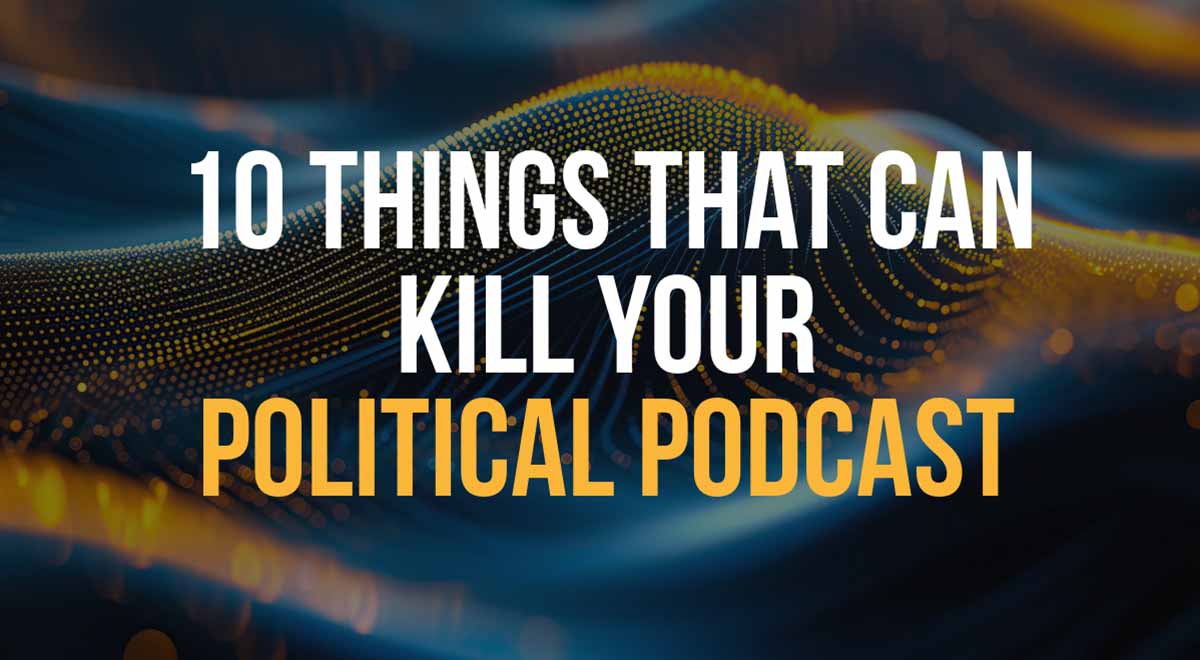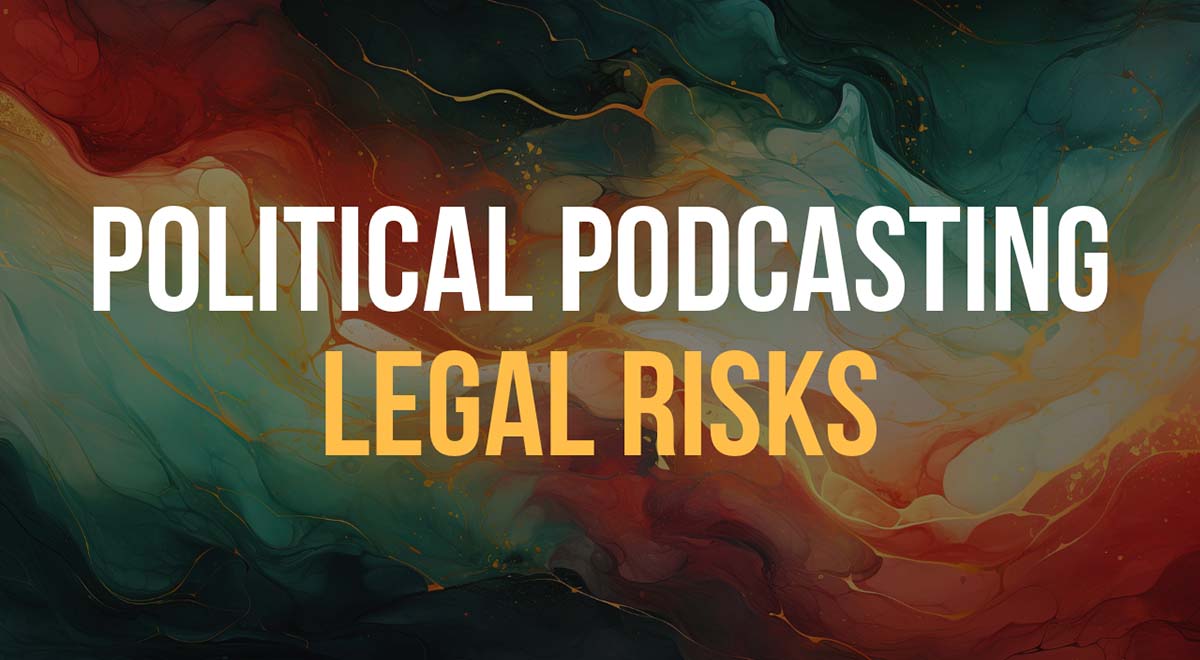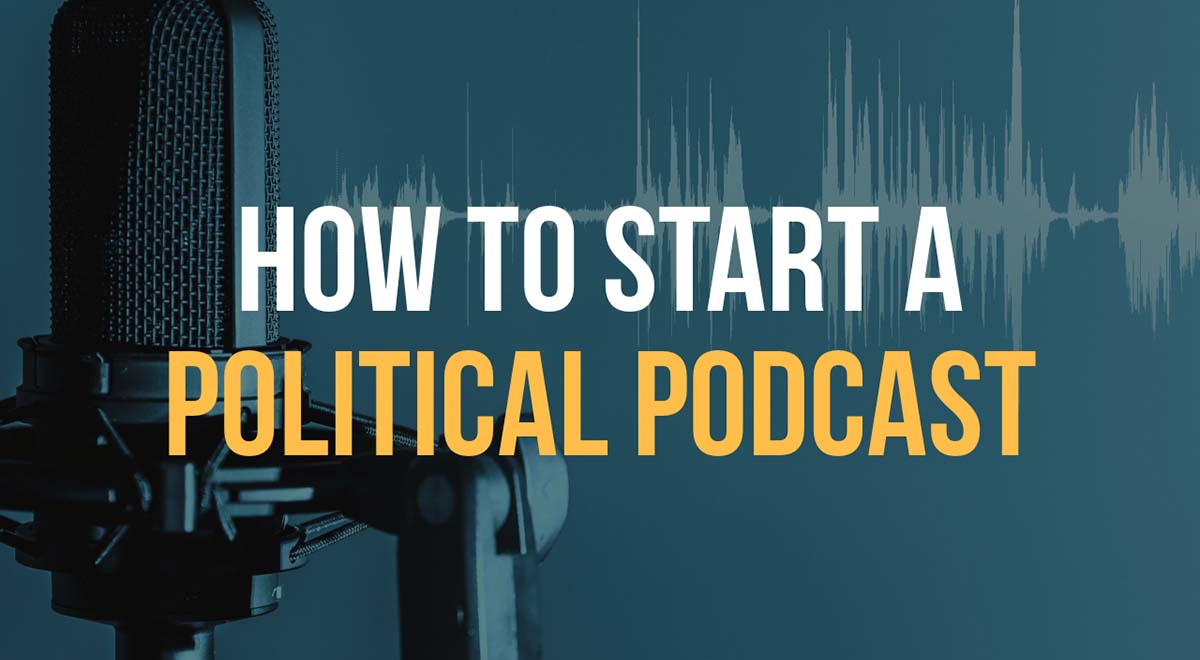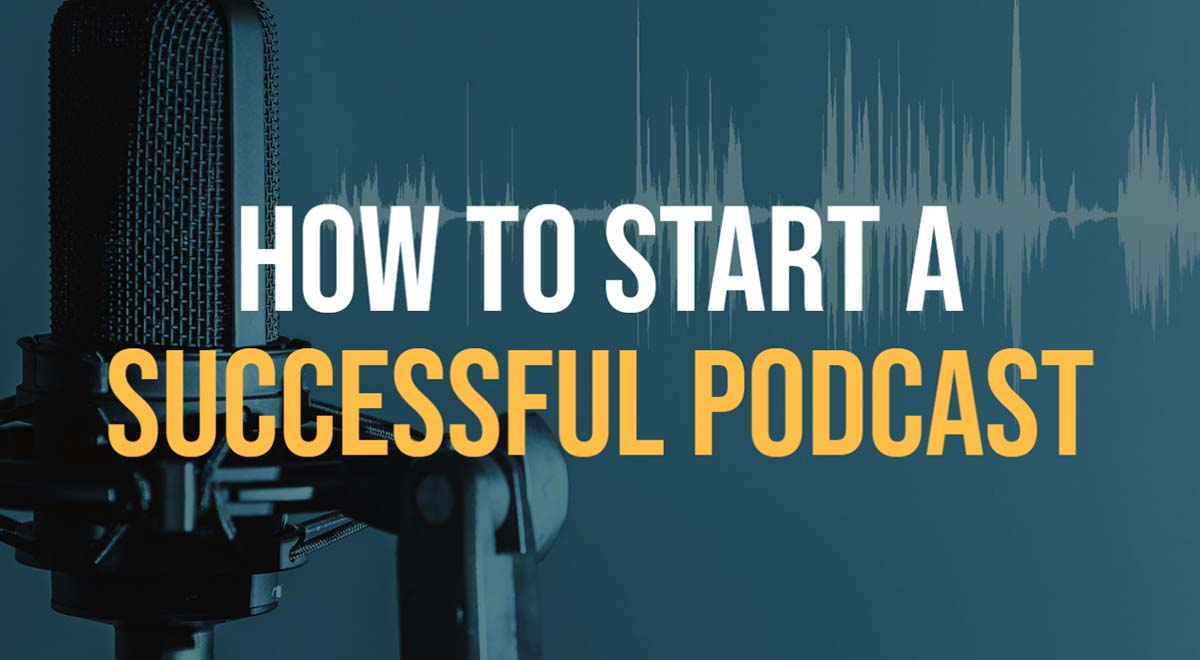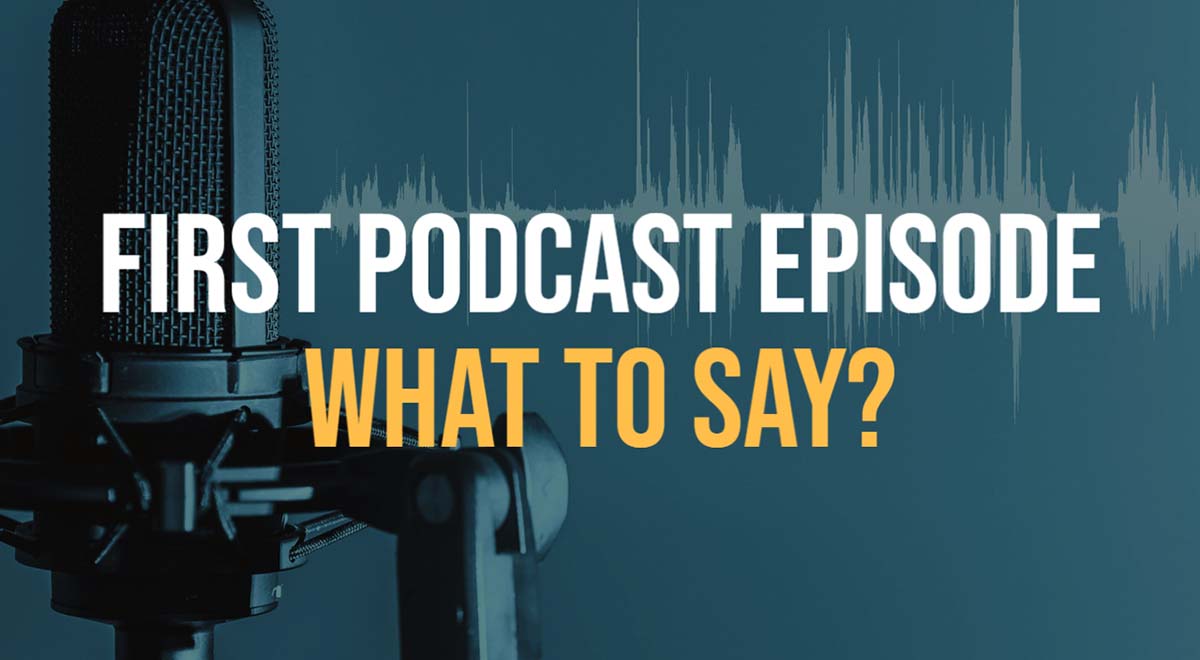Political podcast is a special breed of podcasting and requires careful consideration of potential risks and pitfalls.
The risks range from the legal issue, to the backlash that can come from a single episode, to online trolls spreading misinformation – it’s a lot to consider.
How to make sure your political podcast survives in the long run?
You need to understand the risks and come up with realistic mitigation strategy.
In this post we’ll talk about the 10 things that can potentially kill your political podcast and what you can do to avoid the downfall.
Keep reading!
What issues can effectively kill your political podcast?
Now let’s talk about risk management in political podcasting and explore 10 hazards to keep in mind:
Risk 1: Legal Issues
Political discussions may involve legal complexities, such as defamation, copyright infringement, or unintentional misinformation.
You must be vigilant about staying within legal bounds if you want to avoid potentially costly legal challenges.
Being sloppy with legal matters will give your opponents a good chance to take you off the air (literally).
Learn about all sorts of legal issues you might face as a political podcaster in our follow-up blog post: 10 legal risks of political podcasting
Risk 2: Controversy and Backlash
Political content can be polarizing, leading to controversy and potential backlash from listeners, political figures, or interest groups.
How to avoid the risk of backlash when doing political podcasts?
Prioritize accuracy, objectivity, and respectful discourse.
You can do that thorough research, transparency about your own perspectives, and featuring a variety of guests with different viewpoints.
Avoid inflammatory language and handle controversial topics with sensitivity.
Engage with criticism respectfully, moderate comments, and be prepared to apologize and make corrections when necessary.
Risk 3: Audience Polarization
Political podcasts may unintentionally contribute to audience polarization by catering (exclusively) to a specific ideological group.
This, in turn, may lead to you losing your objectiveness, at least in the eyes of your audience.
How to avoid audience polarization from political podcasts?
While you can strive to mitigate audience polarization, you may not eliminate it entirely.
The goal is to create a podcast environment that encourages thoughtful engagement, critical thinking, and respectful discourse among listeners with diverse viewpoints.
Risk 4: Online Harassment
Engaging in political discussions may expose you to online harassment, especially if their views or content are perceived as controversial.
How to avoid online harassment when podcasting about political topics?
To prevent online harassment when podcasting about politics, employ strong moderation, promote respectful discussions, safeguard personal information, and take swift action against harassers.
Don’t be shy to block the offenders or report them to the platform administrators when necessary.
Your ad here
Risk 5: Security Concerns
Discussing sensitive political topics may attract unwanted attention, leading to security concerns.
How to minimize personal security risks when running a political podcast?
Safeguard your identity by using pseudonyms and avoid sharing of your personal details.
Boost online security with strong passwords and a VPN, and maintain a clear boundary between your public and private life.
Monitor online interactions and seek legal assistance for serious threats.
Risk 6: Spread of Misinformation
Alas, nowadays there’s a very real risk of spreading misinformation.
You certainly don’t want to be labelled “fake news” podcast, right?
How to avoid spreading the misinformation when podcasting?
Always (!) fact-check your information before sharing it and correct any inaccuracies openly and promptly.
Risk 7: Burnout
The intensity of political discussions and the need to stay current can contribute to burnout.
You may feel overwhelmed by the constant demand for new content and the emotional toll of political topics, especially if you aim at covering the topics you deeply care about.
How to avoid burnout from podcasting?
To prevent burnout from podcasting, set achievable goals, maintain a consistent schedule, and delegate tasks when possible.
Prioritize self-care, seek support from fellow podcasters, and consider a seasonal format to incorporate breaks.
Learn about mindfulness and relaxation techniques to help you recuperate quickly.
Above all, choose podcasting topics that genuinely interest you to sustain your passion and enjoyment over the long term.
Risk 8: Sponsorship Challenges
Running an active podcast for a long time may require outside funding.
Some sponsors may be hesitant to associate with political content due to the potential for controversy. You simply may run out of money.
Plan your budgets carefully and scale back if needed (unless you secure a good sponsor) or investigate alternative financing options.
See 25 ideas how you can monetize your podcast.
Risk 9: Regulatory Changes
Political environment can change rapidly.
Sadly, this may lead to new regulations or restrictions on political content.
Stay informed about any regulatory changes that may impact your work.
Risk 10: Audience Trust Erosion
If the audience perceives bias or lack of transparency, trust in your podcast may wane.
How to prevent audience trust erosion when podcasting?
Always strive to maintain credibility. Present well-researched and balanced content.
Prioritize accuracy, transparency, and ethical standards in your content.
Correct errors promptly, engage constructively with feedback, and maintain a respectful environment for discussions.
Bonus Risk: Shifts in Relevance
Politics is always in motion. What’s super relevant today may not be even spark a slighted interest tomorrow. Unless you’re a historian or political history researcher.
How to maintain relevance of political podcasts?
Adapt to political shifts and ensure ongoing relevance if you want your podcast to remain on top of things for a long time.
Stay informed about current events, adapt to emerging topics, diversify your content, and promote through various channels.
Feature diverse guests, don’t be afraid of experimenting with new formats, and monitor metrics to refine your approach.
Most importantly, engage your audience for feedback and ideas!
Music and sounds for political podcasts

Choose from thousands of podsafe music tracks and sounds.
Lifetime royalty free license
Use these audio clips in unlimited podcast episodes.
Cleared for commercial use
Use these clips in monetized and sponsored podcasts.
For a limited time, save $5
Need music for a future project?
Just starting podcasting?
Read our tips on how to choose the topic for your podcast.
Takeaway
Mitigating political podcasting risks involves thorough research, clear communication, responsible content creation, and staying abreast of legal and regulatory developments.
Build a resilient and adaptable approach to content production if you want to stay in the game for long.
Questions? Comments?
We hope this post will help you with creating and running a successful political podcast!
Questions, comments? Speak your mind by posting a comment!
Download 12,000+ Royalty Free Music Tracks And Sound FX
Unlimited download | Lifetime license | Commercial use

